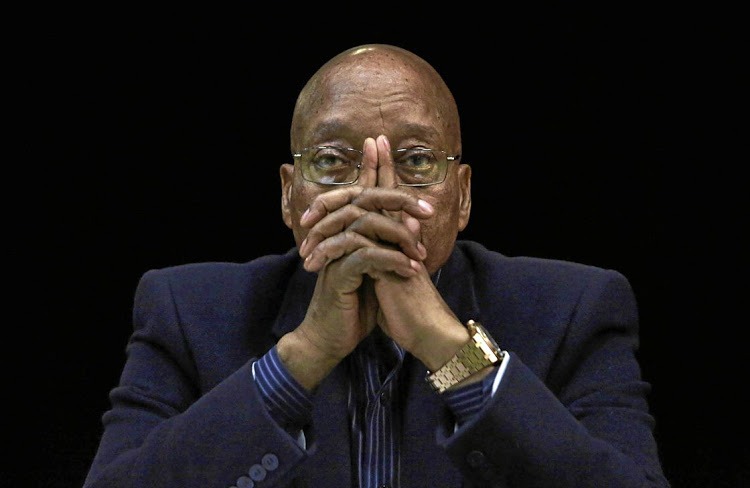
BY TAPIWA GOMO
Whoever thought the word crisis would be used to describe the situation in South Africa after nearly three decades of relative tranquil? South Africa is the superpower of the region and the continent, the land of gold, a country of opportunities and the dreamland for the young generation in impoverished Africa. Politically, South Africa is expected to play a leadership role in the region.
Events of the past week showed that the country is on the cusp of a major crisis and glossing it over with the rainbow nation narrative will not suffice in addressing the simmering tensions and underlying issues. To unpack these issues may require more space and time. Here, I will focus on some of the lessons learnt from events of the past week.
The wave of violence across KwaZulu Natal and Gauteng provinces was triggered by the incarceration of former President Jacob Zuma on July 7 when he began serving a 15-month jail sentence for contempt of court.
Once Zuma handed himself over to the police, violence erupted across KwaZulu Natal province, spreading into other provinces including Gauteng and resulting in massive damage. The unrest has so far caused well over R20 billion in damages resulting in a huge dent to the economy.
Opinion is divided over why Zuma is being dragged to courts for numerous cases, but everything points to the white monopoly capital that has effectively bred factionalism in the ruling African National Congress (ANC) party. The lesson we derive from the coincidence of the events preceding and what obtained after Zuma’s incarceration is the importance of political astuteness and the ability to balance between the legalistic and teleological arguments in maintaining peace. That is the epitome of leadership.
Political astuteness is the ability to understand the political temperature vis-à-vis other potentially volatile factors and the utilisation of such knowledge to one’s own advantage or to make the right decision. Since the beginning of the COVID-19 pandemic, the government has been lackadaisical in growing the economy and preferred to confine people via lockdowns. Poverty and destitution have been deepening and it was only a matter of time before the tensions erupted into violence.
In Zuma’s incarceration, the people saw a trigger to practically express their desperate situation and the damage is massive. Zuma is just an excuse or a face of underlying tensions among millions of poor South Africans who feel their government is obsessed with pleasing the white capital monopoly, while neglecting them. There was enough evidence that Zuma’s incarceration would trigger unrest which the government underestimated and ignored. Was the assumed upholding of the rule of law in jailing Zuma more important over the maintenance of peace and preservation of the economy?
- Chamisa under fire over US$120K donation
- Mavhunga puts DeMbare into Chibuku quarterfinals
- Pension funds bet on Cabora Bassa oilfields
- Councils defy govt fire tender directive
Keep Reading
As the violence unfolded, racial lines were becoming even more defined and clearer. Blacks stood by blacks, same as whites elsewhere and Indians in Durban. Blacks were defined as the looters, while whites and Indians were seen protecting and defending their businesses.
It is clear that most, if not all, of the people arrested by the police and soldiers are blacks, while the same State security apparatus was protecting white and Indian businesses. When this drama is over, prisons will be filled with black people, while insurance queues will be filled with whites and Indians. Such is how the rainbow is either fizzling or maintaining historical imbalances.
That tells a disturbing story about South Africa nearly three decades old. Both the Constitution and the state of the economy are far from bringing back people to the centre of the economy, which is why a hunger war will always pit blacks against white people.
The world cannot anymore blame white people in a country that has had a black government for nearly three decades. It is a shame to black leadership in South Africa.
When they say South Africa’s unemployment rate rose to a new record high of 32,6% in the first quarter of 2021, they are referring largely to black people, who are losing jobs due to the pandemic and a shrinking economy. Non-blacks are easily absorbed in their friends and relatives’ businesses, which is why they are least affected.
Unlike most African countries, South Africa has no peasantry culture where people can retract to their villages and produce food from their small farms. Perhaps it is time South Africa stopped relying on imports and start producing in order to create more jobs.
One of the most curious lessons in all this drama is how the rand has remained stable, while the country was on fire. Historically, the rand is known to rapidly react to unrest, political instability and government decisions. In 2015, when Zuma replaced Nhlanhla Nene with David van Rooyen as Finance minister, the rand fell by 5,7% against the United States dollar, as it traded at more than R15 to the greenback.
But this time around, from the day the Constitutional Court sentenced Zuma, to his incarceration, the eruption of unrests and the colossal damage to property, the rand has remained stable trading at an average of 14,4 against the US dollar.
That tells who controls the economy and whose interests have to be taken into account on matters to do with the economy.
While the arrogance that has characterised the way this crisis has been handled might give the government and white capital monopoly a false sense of victory, events of the past week have also demonstrated that the people are willing to risk their lives to ensure they can feed themselves. It is not business as usual anymore. Only time will tell.











